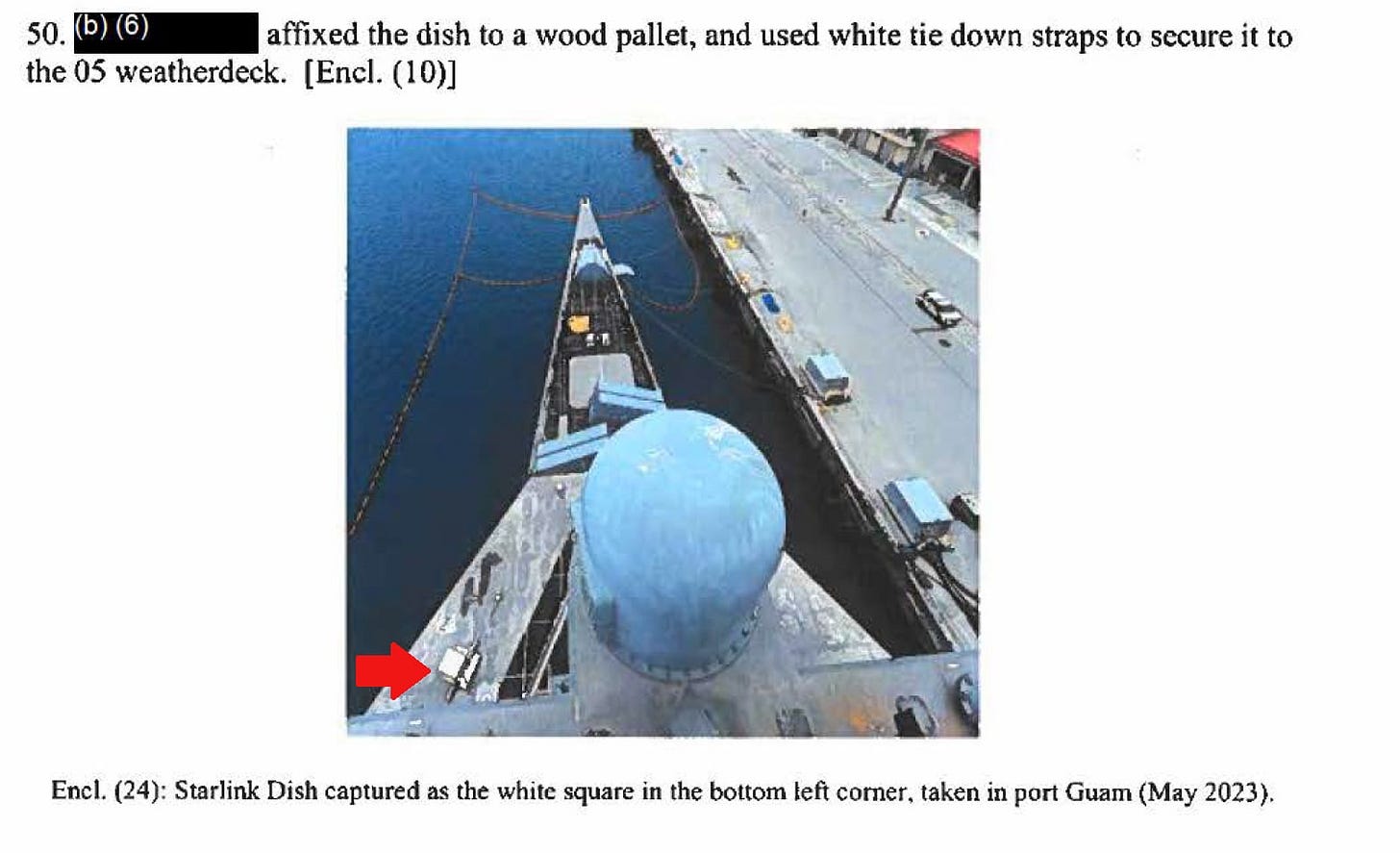While tales of espionage and betrayal by insiders make headlines, another insidious threat is sadly all to common: the everyday actions of personnel who, out of laziness, negligence, or sheer ignorance, create unforeseen vulnerabilities.
A recent incident aboard a U.S. Navy warship brought this reality into stark relief. In a baffling breach of security protocol, Navy officers covertly installed Starlink internet services on a warship to enable Wi-Fi access, sparking a serious security investigation and resulting in significant career repercussions. But this wasn’t a case of treason or sabotage. Instead, it was a story of poor judgment, convenience, and the sometimes troubling desire to bend the rules for personal comfort.
The Accidental Insider Threat
Aboard a U.S. Navy warship Manchester, a chief officer, frustrated by the lack of reliable internet access for personal devices, secretly installed a Starlink satellite internet receiver on the ship. This was done not under the shadow of night by a foreign agent, but openly, albeit quietly, by a senior officer who was eager to gain uninterrupted Wi-Fi access. This unapproved modification was not authorized by the U.S. Navy, and it violated multiple protocols regarding electronic communication and cybersecurity.
Command Senior Chief Grisel Marrero was court martialed and demoted to E-7 for setting up the unauthorized Wi-Fi aboard her combat ship Manchester. Humorously, Marrero’s background within the Navy, is within intelligence.
It began as an innocent enough desire: officers and crew members, like anyone else, wanted access to the internet to stay connected with family and friends or simply to relax after long hours on duty. However, in the context of a military warship, where every communication channel is meticulously monitored and controlled, such actions are not just breaches of discipline—they are potential openings for serious security threats.
According to the Navy Times,
“As the ship prepared for a West Pacific deployment in April 2023, the enlisted leader onboard conspired with the ship’s chiefs to install the secret, unauthorized network aboard the ship, for use exclusively by them.
So while rank-and-file sailors lived without the level of internet connectivity they enjoyed ashore, the chiefs installed a Starlink satellite internet dish on the top of the ship and used a Wi-Fi network they dubbed “STINKY” to check sports scores, text home and stream movies.”
The following is from the Navy’s investigation into the illegal Wi-Fi network setup.
Anatomy of a Security Breach by Convenience
The officer in question managed to convince others on the ship to support the installation, and together they went about setting up the unauthorized connection, bypassing several standard procedures meant to safeguard military communication channels. They saw this as a harmless way to improve morale, perhaps not realizing—or worse, not caring—that their actions could have compromised sensitive operations or made the vessel vulnerable to cyberattacks.
Starlink, while being a cutting-edge satellite internet service, was not vetted or secured by the military's cybersecurity protocols. This meant that any connection to the warship’s network or communication systems could potentially expose classified data to interception by adversaries. The unauthorized Wi-Fi setup could have allowed malicious actors to penetrate the Navy’s secure systems, putting both lives and missions at risk.
What was particularly alarming about this breach was the lack of malicious intent. The officer responsible wasn’t bribed by a foreign government or working for a rogue organization. This was a case of pure, unadulterated stupidity—a desire to circumvent established rules for personal convenience, with little to no regard for the possible repercussions.
Conclusion:
When we think of insider threats, we often picture foreign agents or disgruntled employees deliberately undermining security. However, as this incident aboard a U.S. Navy warship demonstrates, some of the most dangerous threats come from within not due to malice, but because of thoughtlessness, carelessness, or selfish motives. Sometimes, it's not a spy or saboteur who creates a vulnerability but rather someone simply looking for convenience, ignoring the rules, or failing to grasp the gravity of their actions.







